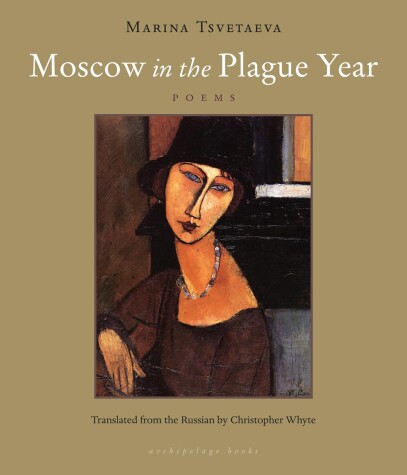Written during the Russian Revolution of 1917 and the Moscow famine that followed, these poems are suffused with Tsvetaeva's irony and humor, which undoubtedly accounted for her success in not only reaching the end of the plague year alive, but making it the most productive of her career. We meet a drummer boy idolizing Napoleon, an irrepressibly mischievous grandmother who refuses to apologize to God on Judgment Day, and an androgynous (and luminous) Joan of Arc.
"Represented on a graph, Tsvetaeva's work would exhibit a curve - or rather, a straight line - rising at almost a right...Read more
Written during the Russian Revolution of 1917 and the Moscow famine that followed, these poems are suffused with Tsvetaeva's irony and humor, which undoubtedly accounted for her success in not only reaching the end of the plague year alive, but making it the most productive of her career. We meet a drummer boy idolizing Napoleon, an irrepressibly mischievous grandmother who refuses to apologize to God on Judgment Day, and an androgynous (and luminous) Joan of Arc.
"Represented on a graph, Tsvetaeva's work would exhibit a curve - or rather, a straight line - rising at almost a right angle because of her constant effort to raise the pitch a note higher, an idea higher ... She always carried everything she has to say to its conceivable and expressible end. In both her poetry and her prose, nothing remains hanging or leaves a feeling of ambivalence. Tsvetaeva is the unique case in which the paramount spiritual experience of an epoch (for us, the sense of ambivalence, of contradictoriness in the nature of human existence) served not as the object of expression but as its means, by which it was transformed into the material of art." --Joseph Brodsky
While your eyes follow me into the grave, write up the whole caboodle on my cross! 'Her days began with songs, ended in tears, but when she died, she split her sides with laugher!'
--from Moscow in the Plague Year: Poems
"Represented on a graph, Tsvetaeva's work would exhibit a curve - or rather, a straight line - rising at almost a right angle because of her constant effort to raise the pitch a note higher, an idea higher ... She always carried everything she has to say to its conceivable and expressible end. In both her poetry and her prose, nothing remains hanging or leaves a feeling of ambivalence. Tsvetaeva is the unique case in which the paramount spiritual experience of an epoch (for us, the sense of ambivalence, of contradictoriness in the nature of human existence) served not as the object of expression but as its means, by which it was transformed into the material of art." --Joseph Brodsky
While your eyes follow me into the grave, write up the whole caboodle on my cross! 'Her days began with songs, ended in tears, but when she died, she split her sides with laugher!'
--from Moscow in the Plague Year: Poems
- ISBN10 1935744968
- ISBN13 9781935744962
- Publish Date 12 August 2014 (first published 1 January 2014)
- Publish Status Out of Stock
- Out of Print 8 September 2021
- Publish Country US
- Imprint Archipelago Books
- Format Paperback (US Trade)
- Pages 180
- Language English
- URL https://penguinrandomhouse.com/books/isbn/9781935744962
